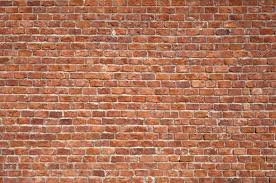The Three R's of Self-Destruction - Part Three: The Second R, Resistance
Resistance
the
act of opposing or withstanding
Resistance may
serve us in some instances.
Resisting unhealthy choices and immoral practices serves us, but in many
cases, resistance is futile! Most
forms of resistance lead to negative escalations in relationships because the
motives of the resistance are flawed.
You push, so I push back, and soon we are exhausted from resisting.
Gandhi said, “An
eye for an eye only ends up making the whole world blind.”[i] He was talking about the ancient law
employed in much of the world. The
idea behind “eye for eye, tooth for tooth” was to do away with the third R of
self-destruction, revenge. If you
take an eye, justice demands I can take your eye. The problem is most people don’t want to just take one eye
in return. They want to pluck out both eyes! Soon everyone involved is eyeless, toothless,
limbless, or worse, dead! When we
employ resistance, someone loses.
Saint Peter
writes, “If it is at all possible, as far as it depends on you, live at peace
with everyone.”[ii] If it is at all possible to find a
beneficial resolution to any circumstance without using resistance, by all
means, practice that solution. Our resistance uncovers our lack of compassion,
the inability to see through another’s eyes, to try and understand another’s
point of view. Compassion and
cooperation are keys to win-win solutions.
Why do we
resist? In the West perhaps we can
chalk it up to “rugged individualism.”
Perhaps it is pride, or a competitive nature. Most reasons relate to the two big stories: the need to be right rather than be
successful and the need to look good.
Most people would rather look good than
look inward. Weak people look
outward and blame others, putting control into others’ hands, but strong people
look inward and make adjustments.
What you resist will persist!
What you focus on grows!
We may resist because it gives us the illusion
of control. When we resist, we
often tell ourselves we are in control or in power. Ironically, when we resist, we actually relinquish control
or power because those we resist determine our behavior. Resisting does not
give us control. It controls us! In reality we only control
ourselves. As long as we resist,
we will find ourselves in lose-lose situations. We must make The Shift, change our minds, and transform our thinking.
Who We Aren’t Instead of Who We Are
Another reason we resist may be because it
is so much easier for us to define who we aren’t. Most people can tell you what they don’t believe, what they
are against, or what they don’t want to do, but ask them who they are, what
they’re for, or what they want to do, and many have no response. That’s why it is so easy for us to
criticize others without looking at our own behavior.
Protesting
against an unjust law or a verdict in a trial is far easier than living daily
the answer to injustice.
Protesting against injustice is healthy if it is coupled with
proactively living the solutions.
The challenge is that it’s easy to just be against something. It’s far more difficult to live for something bigger than
yourself. But who you are and what
you do speaks much more loudly than your words. Treat others the way you want to be treated.[iii]
Gandhi
abhorred the violent mistreatment of the Indian people, but he knew resisting with
violence simply created a monster to defeat a monster. Resistance often turns us into what we
resist and is based solely on being right
and looking good. Resistance of this kind has little to
do with justice or morality and everything to do with revenge and
immorality. When we resist in this
way, we are thinking only about ourselves, looking for an excuse to put ourselves
first, and this self-centered thinking tends to be the major reason we resist.
Gandhi’s satyagraha was about serving all of
India, encouraging the British Empire to see his and others’ humanity, not by
animalistic violence, but through non-violent protest or by breaking unjust
laws that brought attention to oppression and the dehumanization of the people
of India. This resistance defined
who Gandhi was and whom the Indian people were, not what they weren’t.
Henry David Thoreau’s writings on the
man of conscience, even if a majority of one, is the beginning of the change
we’d like to see in the world. You
must be someone whose resistance is not really resistance but a proactive way
of living the life of the person of conscience.
Lao Tzu
writes, “The highest good is like water.
Water gives life to the ten thousand things, and yet does not compete
with them. It flows in places that
the mass of people detest, and therefore is it close to the Way.”[iv]
Tearing Down the Walls
The real problem in a relationship is when the arguing stops.[v]
-Bono
One of the major forms of resistance is
putting up a wall or cutting off communication. As long as people are talking there’s a chance of
reconciliation. The word hate has
been grossly misunderstood. Rather
than an emotion like anger or fear, the essence of the word hate is separation and isolation from someone or some thing. If I hate broccoli, I don’t want it
near my plate. Hate is a form of resistance. A marriage where spouses stop communicating
may be more hateful than a marriage
where spouses are discussing passionately values dear to them. When silence turns to distance, and
wounds become walls, destruction comes calling.
Most problems
in life emerge from poor communication: ruined friendships, broken marriages,
parent-child conflict, faltering businesses, even warring countries. So resistance in the form of deliberate
wall-building or cutting off communication is bound to create self-destruction
eventually. Focus on the obstacle,
and it will grow. Focus on the
solution, and it will grow. Avoid the obstacle, and it will
grow. Embrace the
Obstacle-Opportunity, and you will
grow. Be like water. Move
toward your goal. Embrace the
obstacles along the way. Keep the
conversation going. Leave them
better than when you found them.
Bring them life, and life will transform all involved.
[i] Fischer,
Louis. The Life of Mahatma Gandhi.
Harper and Row, 1983. Print.
While the quote is widely attributed to Gandhi, no citation directly places this exact
wording occurring anywhere in Gandhi’s writings, though he may have spoken it
at some time. Fischer writes in
his biography of Gandhi a variation of the idea, and because of this, I cite
his comprehensive work on the Mahatma’s life. I highly recommend this biography and the film upon which it
is based, directed by Sir Richard Attenborough and starring Ben Kingsley.
[ii] Romans 12:18
[iii] Matthew 7:12
[v] Assayas,
Michka. Bono in Conversation with Michka Assayas. Riverhead Books.
Penguin. New York.
2005-2006. Print.


















0 Comments:
Post a Comment
Subscribe to Post Comments [Atom]
<< Home